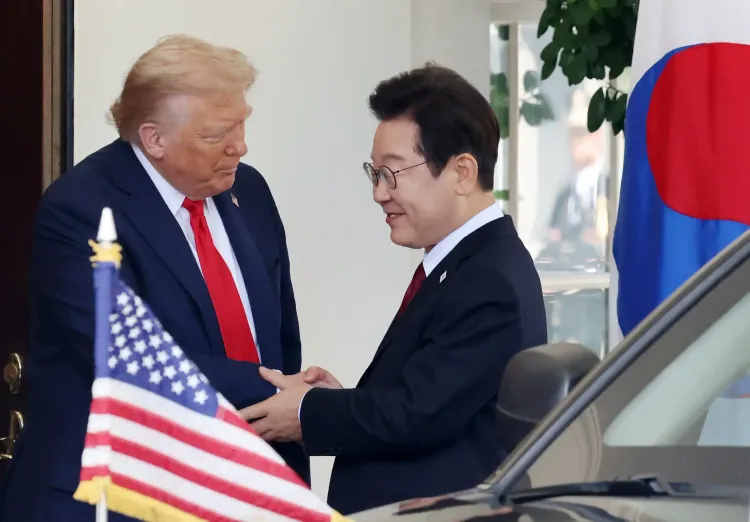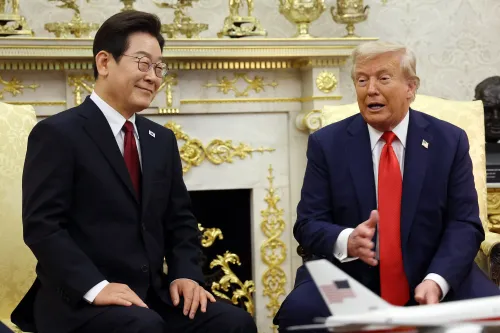Is the US Ready to Finalize a Trade Deal with South Korea?

Synopsis
Key Takeaways
- The U.S. is eager to finalize a trade deal with South Korea.
- South Korea has pledged a $350 billion investment in the U.S.
- Negotiations are ongoing to resolve tariff and funding issues.
- High-ranking officials from South Korea are actively involved in discussions.
- President Trump’s visit to South Korea is pivotal for these negotiations.
Washington, Oct 25 (NationPress) The United States is eager to secure a trade agreement with South Korea as soon as Seoul is prepared to make suitable commitments, according to a senior U.S. official. Both nations are working to overcome differences regarding the implementation of South Korea's $350 billion investment promise within the framework of the deal.
The comments were made during an online press briefing, amid uncertainty about whether a breakthrough could be achieved before or during the summit between Korean President Lee Jae Myung and U.S. President Donald Trump, scheduled for Wednesday in South Korea.
Trump is expected to embark on a two-day state visit to South Korea on Wednesday and Thursday, coinciding with the Asia-Pacific Economic Cooperation summit in the southeastern city of Gyeongju on October 31 and November 1, as reported by Yonhap news agency.
"We are very eager to finalize a deal with Korea as quickly as possible, as soon as they are ready to take the commitments we consider appropriate," the official stated.
The official reiterated the Trump administration's interest in shipbuilding collaboration with South Korea.
"We value their expertise, investments, and... overall collaboration to assist the U.S. in revitalizing its manufacturing, defense sector, shipbuilding, and submarine construction efforts."
The two nations agreed on the trade deal in late July, where South Korea pledged to invest $350 billion in the U.S., among other commitments, in exchange for Washington's agreement to reduce its reciprocal tariff and sector-specific duties on South Korean automobiles from 25 percent to 15 percent.
However, the agreement has not yet been implemented due to ongoing negotiations aimed at resolving various sticking points, including how to finance the investment package.
In recent weeks, high-ranking South Korean officials, including Kim Yong-beom, the presidential chief of staff for policy, Finance Minister Koo Yun-cheol, and Industry Minister Kim Jung-kwan, have made multiple visits to Washington, emphasizing Seoul's intensified efforts to address the remaining issues in the trade discussions.









